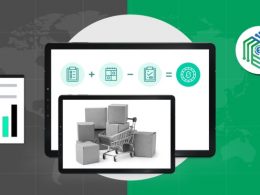Hiring a bookkeeper goes beyond just looking at resumes. It’s about engaging in a dialogue that reveals the depth of a candidate’s expertise, their adaptability to your company’s culture, and their ability to communicate complex financial information in a straightforward way.
This article aims to equip you with a set of interview questions designed to uncover the true caliber of your bookkeeper candidates. What’s more, if you’re a bookkeeper preparing for an interview, we also have a section on how to answer some of the most common interview questions.
Unlock the full potential of your financial data with Synder. Experience streamlined, error-free bookkeeping that empowers your business decisions. Join us now and transform your accounting workflow today!
TL;DR
- Go beyond the resume and engage in meaningful dialogue to discover a candidate’s true expertise, cultural fit, and communication skills.
- Understand your business’s unique requirements—whether it’s industry-specific experience, software knowledge, or key financial tasks—and customize your interview questions accordingly.
- Incorporate questions that assess a candidate’s problem-solving abilities, motivation, and how they handle stress, ensuring they’re not just technically proficient but also a good fit for your team’s dynamics.
What are your goals for this interview?
When you’re gearing up to interview a bookkeeper, before you jump into questions, you need to know your goals for the interview. This isn’t just about ticking boxes for skills and experience (you get a lot of that from a resume alone). It’s about finding a person who will mesh with your team, embrace your company’s values, and bring what you need into your business.
Skip what you know, discover what you don’t
It sounds so obvious, right? You would be surprised at how many interviews start with questions that the answers can easily be found on the resume or the application. For example:
- What accounting or bookkeeping software are you proficient in?
- What bookkeeping qualifications do you have?
These types of questions take away the time from the hiring process and wastes the opportunities for more meaningful interview questions. So only ask what you don’t know and what can help you make a more informed decision about hiring the right person.
Understand your business’s unique needs
Every business is a world of its own, with its specific challenges, culture, and way of doing things. Start by pinpointing what makes your business tick:
- Industry-specific experience: Does your business operate in a sector with complex financial regulations, like healthcare or real estate? If so, you’ll want a bookkeeper who’s a navigator of your industry’s financial waters.
- Accounting software savvy: If your company uses a particular accounting software or other key tools, it’s a big plus if your new bookkeeper can hit the ground running without needing extensive training.
- Financial task mastery: Think about the financial tasks that are crucial for your business. Are you looking for someone who’s a pro at managing cash flow, handling payroll, or preparing detailed financial reports? Identify these tasks to help you find a bookkeeper who’s up to the task.
Look for a cultural fit
Skills and experience are vital, but so is finding someone who’ll thrive in your workplace. Consider what attributes make someone a good fit for your team. Is it a collaborative spirit, independence, or perhaps a blend of professionalism and a sense of humor? Understanding your company culture will guide you in selecting interview questions that help reveal if a candidate will gel with your team.
Assess problem-solving abilities
When numbers don’t add up or when unexpected financial challenges arise, you need someone who can think on their feet. Consider making it a goal to evaluate how candidates approach problem-solving. You might ask about times they’ve navigated through financial discrepancies or adapted to new financial regulations.
Gauge motivation and commitment
Why does this candidate want to work with you? Are they just looking for any job, or are they passionate about what your company does? A candidate’s motivation can be a strong indicator of their future engagement and longevity with your company. Make it a goal to uncover this, as it can lead to more fruitful and long-lasting employment relationships.
How to begin the bookkeeper interviews?
Starting an interview with icebreaker questions is a great idea. It can set a positive tone for the rest of the interview, making it easier for bookkeepers to openly discuss the more substantive questions that follow. It’s a gentle way to start the interview that benefits both the interviewer and the interviewee, laying the groundwork for an honest and productive job conversation.
Set the tone for the interview
There is nothing simpler than sharing what you want out of this bookkeeping interview, both in terms of the atmosphere and the outcome. Saying something like ‘I really hope we can have a friendly and open conversation about what we both are looking for in this job opening. And that through this interview, we will both be able to get answers to our questions and decide on our possible future collaboration.’ It’s such an empowering opening to an interview for both of you.
Look for similarities
Spot a common element between you and the interviewee that you got from the resume. It can be the type of job they previously did, an educational background, or even some hobbies and interests. And then have a small chat about this shared experience. This shows that you not only took time to read the documents they submitted when applying for this job but above all, it creates a connection and a friendly atmosphere for the whole interview.
Evaluating expertise: Key bookkeeping interview questions
When diving into the heart of a bookkeeper interview, your mission is to uncover not just what they know, but how they apply their knowledge in the real world. This is your chance to peel back the layers of their technical prowess, from their comfort with crunching numbers to their agility with accounting software and their savvy with financial regulations.
Delving into accounting software expertise
Proficiency with accounting software is non-negotiable. But since there’s a whole ecosystem of software out there, you want to know not just if they can use it, but how well they can.
“What software did you discover that changed the way you do bookkeeping and why?” This opens the door for them to share their professional experience and comfort level with trying new tools of the trade. It also shows how open they are to automation in bookkeeping.
“Can you describe a challenging issue you encountered with accounting software and how you resolved it?” This question isn’t just about technical skills; it’s about problem-solving and adaptability.
Understanding financial regulations
Staying compliant with financial regulations is a critical part of a bookkeeper’s role. Their ability to navigate these waters can save your company from headaches down the line.
“How do you stay updated with changes in financial regulations relevant to our industry?” This question probes their commitment to continuous learning and compliance.
“Can you give an example of a time when you had to adjust your bookkeeping practices due to a change in financial regulations?” This is about application and adaptation, showing how they translate knowledge into action.
Financial statements preparation
The bread and butter of bookkeeping involve preparing accurate financial statements. Understanding their approach and accuracy in this area gives you a glimpse into their process.
“Walk me through the steps you take to prepare accurate financial statements at the end of the fiscal year.” This gives insight into their process and attention to detail.
“How do you ensure accuracy and reliability in the financial data you report?” Here, you’re looking for their quality control measures, hinting at their diligence and integrity.
Scenario-based questions for real-world problem-solving
Scenario-based interview questions can throw candidates into the deep end, challenging them to showcase how they’d navigate real-world situations.
“Imagine you discover a significant discrepancy during your routine financial reconciliation. What steps would you take to investigate and resolve it?” This tests their analytical skills and their approach to problem-solving.
“A client has questions about their financial statements that you’ve prepared. How do you explain complex financial information to non-financial individuals?” This question assesses their ability to translate complex financial jargon into understandable information.
A small caveat here, some excellent candidates may possibly not ace this part. It could be due to the nature of this type of interview questions (they are real but imaginary at the same time) or due to other reasons. So, if you see a bookkeeper struggling with the answer, do some follow-up questions to find out what exactly is causing the issue.
Expertise interview questions: Key takeaways
By asking these interview questions, you’re not just looking for answers but for stories and examples that showcase a bookkeeper’s expertise in action. The way they tackle these questions can offer deep insights into their technical capabilities, their problem-solving strategies, and their ability to communicate complex financial information clearly and effectively.
Want to learn more? Find out how businesses can benefit from outsourcing accounting services.

Assessing the intangibles: Soft skills questions for bookkeeping interview
Soft skills are the unsung heroes of the workplace, especially in roles that bridge the gap between numbers and people. For bookkeepers, these skills can mean the difference between simply keeping records and truly contributing to a team’s success.
When interviewing a bookkeeper, it’s crucial to weave in questions that shed light on their communication abilities, their knack for organization, their eye for detail, and how they juggle deadlines with grace. Here’s a set of interview questions designed to help you uncover these essential soft skills.
Communication skills
When working with numbers, being able to articulate findings, issues, and insights in a clear, understandable way is key, especially when dealing with non-financial team members or clients.
“Tell us about a situation where you had to communicate a financial discrepancy or error to a colleague or manager. How did you handle it, and what was the response?” This question probes into how the candidate deals with potentially sensitive or challenging communications, emphasizing their tact, clarity, and ability to maintain professional relationships while addressing issues.
“Have you ever had to convince a team or department to adopt a new financial process or use a new piece of accounting software? Describe how you communicated the benefits and trained others.” This question assesses the candidate’s ability to advocate for change, their persuasive communication skills, and their ability to support others through transitions, highlighting their role as both a communicator and an educator within their team or organization.
Attention to detail and organization
Accuracy is non-negotiable in bookkeeping, and being organized is directly tied to achieving it. These skills ensure that nothing slips through the cracks.
“How do you manage and prioritize your tasks to ensure accuracy and meet deadlines?” This question delves into their time management and organizational skills, showing how they balance multiple priorities.
“Tell me about a time when your attention to detail caught a mistake that could have been costly to the business.” Here, you’re looking for a story that highlights their precision and its impact on the business.
Conflict resolution and handling stress
Conflict and stress are part of any job, but the way a person handles them can say a lot about their soft skills and suitability for a team.
“Describe a situation where you disagreed with a colleague on a financial matter. How did you resolve it?” This looks at their conflict resolution skills and their ability to collaborate towards a solution.
“Tell me about a particularly stressful period at work and how you managed it.” This question aims to understand their coping mechanisms and resilience in challenging situations.
Soft skill interview questions: Key takeaways
Asking these interview questions gives you a window into how a bookkeeper navigates the softer, but equally crucial, aspects of their role. You’re looking for more than technical prowess; you’re searching for a candidate who can seamlessly integrate into your team, communicate effectively, and handle the pressures of the role with composure.
If you run a business and are looking for a QuickBooks ProAdvisor, check out our guide.

Hiring process from a bookkeeper’s perspective: How bookkeepers should tackle typical interview questions
If you’re a bookkeeper trying to prepare well for an upcoming job interview, this section is for you. We will now turn to your side of the interview table. In this last part, we will focus on the most common questions and how to make a memorable impression during your bookkeeper interview.
How do you pass a bookkeeper interview?
Passing a bookkeeper interview it’s about meeting different criteria at the same time. It means demonstrating your proficiency in bookkeeping principles, your ability to use relevant software, your problem-solving skills, your fit within the company’s culture, and probably more. It surely seems like a lot, but preparation is always there to help you out. Here is how you can prepare:
- Research the company: Understand their industry, the challenges they face, and how your role as a bookkeeper can address those challenges. This knowledge will help you tailor your answers to show how you can add value to their team.
- Review your experience: Be ready to discuss specific examples from your past roles that highlight your expertise, achievements, and how you’ve overcome challenges.
- Prepare questions: Show your interest in the role and the company by preparing thoughtful questions to ask at the end of the interview.
What is the best answer for “Tell me about yourself?”
This question is an opportunity to summarize your professional journey, emphasizing experiences and skills that are most relevant to the bookkeeping role you’re applying for. A strong answer might follow this structure:
- Present: Start with your current situation. Briefly describe your current role and responsibilities. If you’re out of the job at this moment you can go straight to the next point.
- Past: Highlight your previous experiences. Focus on your jobs or projects mentioning specific achievements or learnings. This is your chance to shine. Pick 5 key elements you want to highlight.
- Future: Conclude with your future goals. Explain why you’re interested in this bookkeeper position and how it aligns with your career aspirations.
Why should you hire me as a bookkeeper? or Why should we choose you?
To is a classic elevator pitch. You need to be brief and yet stand out so don’t forget to focus on what makes you unique. This could be your proficiency with specific bookkeeping software, your experience in the industry, or a particular achievement that demonstrates your skills.
Remember, this interview question forces you to answer it from the company’s point of view – keep that in mind when constructing your answer. It’s about what value you bring to them as a talented bookkeeper.
This question also assesses your ability to advocate for yourself. So make sure to practice it with friends to become comfortable with this answer.
Why do you want this job?
Here, we have the reverse of the above question – the focus is on you. Why this job? Why this role? Why this company? Employers ask these interview questions to gauge your enthusiasm for the role and to see if you’ve thought about how you fit into the company. A compelling answer should:
- Express your enthusiasm: Explain what excites you about the role and the company.
- Show alignment: Discuss how the job aligns with your career goals and values.
- Demonstrate your value: Mention how your skills and experiences will help you contribute to the company’s objectives.
Job interview questions for bookkeepers: Key takeaways
Remember, interviews are a two-way street. They’re not just about the company finding the right candidate but also about you finding the right opportunity. Be genuine in your responses, and use the interview as a way to assess whether the company and the role are a good fit for your career aspirations and overall well-being.
Bookkeeper interview questions: Conclusion
Wrapping up our deep dive into selecting the right bookkeeper interview questions, it’s clear that finding the ideal candidate is about more than just their technical know-how and work history. The questions we’ve looked at are designed to bring out real stories and examples that show what a candidate is truly capable of, how they solve problems, and how well they’ll fit into your workplace culture.
With these bookkeeping interview questions in hand, you’re now set up to run interviews that are not only revealing for you but also engaging for the people you’re interviewing, leading to smart hiring choices that will strengthen your team for the future.
Dive into the world of flawless bookkeeping with Synder’s free trial and attend our Weekly Public Demo to see our solution in action. Start your journey towards accurate, hassle-free accounting now – your first step to financial clarity is here!
Share your experience
If you’ve encountered standout questions or strategies in bookkeeper interviews, either as an interviewer or a candidate, please share them in the comments below. Your insights could greatly benefit others navigating similar paths.











.png)